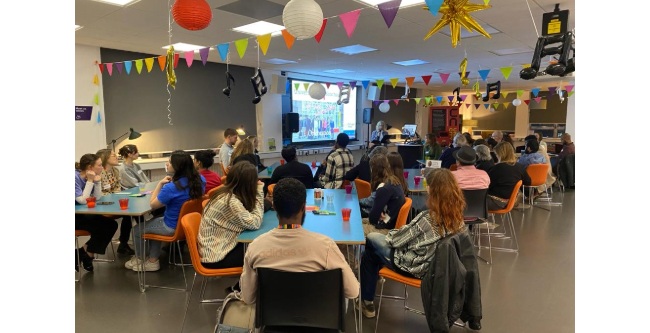Goal 17: Partnerships for the goals
Strengthen the means of implementation and revitalize the Global Partnership for Sustainable Development
Our research
A partnership of 20 research groups from around the world is aiming to improve global health by uncovering the effects of genomic and environmental diversity on differences in disease risk observed across the global population. Led by the University’s MRC Integrative Epidemiology Unit, the groundbreaking five-year Diverse Epigenetic Epidemiology Partnership (DEEP) project will explore key population health questions using datasets from across African, Asian, and North and South American continents. There is huge variation in disease onset and symptoms for people living in different global regions but, up to now, many global communities are often under-represented in health studies.
The 1987 Montreal Protocol introduced international controls on the production and usage of chemicals which destroy Earth’s ozone layer, which were once widely used in the manufacture of hundreds of products. A new study has revealed significant progress in the drive to reduce levels in the atmosphere of these chemicals, confirming the success of the regulations. Led by the University of Bristol, with partners from the USA, Switzerland and Australia, the findings show for the first time a notable decline in the atmospheric levels of potent ozone-depleting substances called hydrochlorofluorocarbons (HCFCs).
Our students
Many universities have committed to embedding sustainable development into student learning but there is a risk that it can become too generic or introduced as a tick-box exercise. The University’s Academic Director of Sustainability has developed a framework for considering and integrating sustainable development into every undergraduate degree programme. The focus is on developing meaningful content which considers the motivations of the students in that discipline and builds on existing units.
We continue to support the 1 in 5 project, which engages students in the climate and ecological emergency through final year projects. Examples of undergraduate projects and dissertations in 2023/24 included investigating how the Climate Fresk workshops, which are offered to students at Bristol, have an impact on the participants. It explored whether participation led to changes in knowledge, attitudes, behaviour and beliefs concerning climate efficacy.
Our communities
In June 2024, a group of Bristol experts attended the Bonn Climate Change Conference in Germany. The focus for our team was inclusivity and how the transition to net zero can be fair and equitable. Bristol attendees from the Cabot Institute for the Environment provided expertise on climate justice, climate policy, equitable development, and climate law, and presented a session on building inclusive urban climate policy alongside representatives from the Youth Climate Councils Global Alliance, Green Africa Youth Organisation, and C40 Cities.
The UK and Switzerland host ten of Europe’s top 20 research universities, and are recognised for their global innovation and forward-thinking research policy. Building on their history of collaboration, the University of Bristol’s BioDesign Institute hosted the Synthetic & Engineering Biology British-Swiss Summit in May 2024. The inaugural event was devoted to understanding the opportunities presented by engineering biology technologies to drive collaborative innovation in healthcare with a focus on environmental sustainability.
Ourselves
A partnership agreement aiming to reshape the educational and economic landscape of the South West in pursuit of green goals was signed by the University of Bristol and Bridgwater & Taunton College. Focused on supporting the UK’s transition to a net-zero economy, the partnership formalises the commitment of both institutions to leverage strengths and harness their collective experience and resources. Together, they will act as a catalyst for technological advancement, and drive the regional response to deliver the ambitious clean and inclusive growth strategy of Gravity, the UK’s first smart campus.
City leaders joined students and staff at an event in March 2024 to celebrate the University’s role as a University of Sanctuary, located in a City of Sanctuary. Attendees heard about the University’s Sanctuary Scholarship programme, which has helped the forcibly displaced to study at Bristol since 2016 and has supported 76 talented people from across the world. Scholars enrolled on the programme receive degree funding, pastoral care, careers advice and sports passes. The celebratory event also showcased art created during a two-day workshop called ‘Finding Home in Education’.

